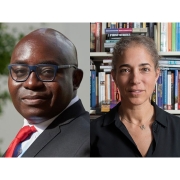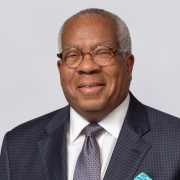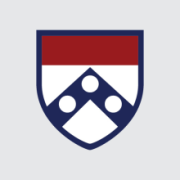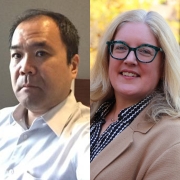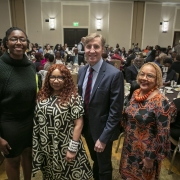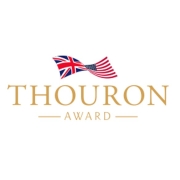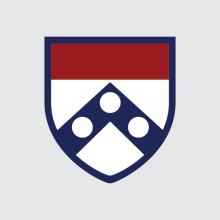
Penn Arts & Sciences has named 20 students from the College of Arts & Sciences, the College of Liberal & Professional Studies, and the Graduate Division as 2023 Dean’s Scholars. This honor is presented annually to students who exhibit exceptional academic performance and intellectual promise. The students will be recognized at the Stephen A. Levin Family Dean’s Forum on April 17.
COLLEGE OF ARTS & SCIENCES
Ayan Bhattacharjee (Biophysics, Chemistry) Ayan is a Roy and Diana Vagelos Science Challenge Award recipient and a submatriculant in the M.S. in Chemistry program. He did research in synthetic organic chemistry in the lab of Professor Gary Molander, working on innovative synthetic methods for the preparation of drug-like materials. He then moved to computational chemistry, using high-level calculations to develop a tool to model proteins and ribosomes at D. E. Shaw Research, and has continued this line of research with Professor of Engineering Greg Bowman, employing computational methods using molecular dynamics (modeling the motions of large biomolecules) to design new proteins and to understand how these structures inform their function.
Elena Isasi Theus (Biochemistry, Biophysics, Physics, Mathematics) Elena is a student in the Roy and Diana Vagelos Scholars Program in Molecular Life Sciences. Her research has evolved from wet-lab work on molecular biology of neurodegenerative disease to areas of mathematical biology and the recent developments in single cell biology. Her research portfolio has unusual breadth and depth. Research supervisor Junhyong Kim, Patricia M. Williams Term Professor of Biology, noted that Elena “is the most relentlessly intellectual student I have met in my 30+ years of teaching at Penn and Yale.” Elena is a Roy and Diana Vagelos Science Challenge Award recipient and is currently working on a master’s thesis on topological data analysis.
Sarah Kane (Physics) Already a skilled experimental astrophysicist, Sarah and a student colleague devised a new method for detecting transiting exoplanets using machine learning in the lab of Bhuvnesh Jain, Walter H. and Leonore C. Annenberg Professor in the Natural Sciences. This past summer she conducted research in galactic astronomy through a National Science Foundation Research Experiences for Undergraduates program at the University of Texas-Austin. As a person whose visual impairment poses challenges for observing the stars, Sarah works at the intersection of disability advocacy and science to create innovative strategies promoting inclusivity in science, particularly for people with disabilities. She has been awarded a Marshall Scholarship that she will use to pursue a Ph.D. in Galactic Astronomy at the University of Cambridge.
Emma Keeler (Biology) Emma is a submatriculant in the Biology master’s program. She has upended the prevailing idea of established researchers in the field that redondoviruses infect human cells and proved instead that redondoviruses infect protozoa that live in the mouth. She is interested in studying a family of viruses that can avoid the host immune system and cause a variety of human illnesses ranging from hepatitis to encephalitis, so that more effective treatments can be found. Emma is editor of the Penn Bioethics Journal and founder and president of the Penn Infectious Disease Club (PIDC). She has been awarded a Goldwater Scholarship that she will use to pursue a Ph.D. in microbiology or virology.
Amy Krimm (Visual Studies) Amy aims to expand and advance their knowledge in the emerging field of neuroaesthetics. She has forged this path by combining her academic interests with a commitment to community service. Amy finds meaning in art and craft, and seeks to broaden understanding of the biological basis for how we conceptualize art and beauty and its impact on human behavior. She also has a minor in American Sign Language and Deaf Culture. Under the Marshall Scholarship, Amy will pursue an M.Sc. in Psychology of the Arts, Neuroaesthetics, and Creativity at Goldsmiths University of London, and an M.A. in Fine Art at Lancaster University.
Wes Matthews (Anthropology) Wes is concentrating in Cultural and Linguistic Anthropology and is interested in music, music performance, and religious considerations of the human condition. His research study addresses the experience of a group of young men he has known since childhood, describing their experience of rap music and music production and untangling the philosophical basis for their responses to social trauma, hopelessness, and violence. As a Wolf Humanities Center Fellow, Wes will receive funding to pursue the travel part of this study. He has received numerous honors: the 2022 W.E.B. Du Bois Prize in Africana Studies for his research on nihilism in Detroit hip hop, the 2020 College Alumni Society Prize for his poetry, and the 2020 Lillian and Benjamin Levy Award for his music criticism.
Alessandra Pintado-Urbanc (Linguistics) Alessandra has a passion for connecting theoretical perspectives with the psychological reality of language, in both acquisition and adult psycholinguistics. She joined Linguistics Professor Anna Papafragou’s Language and Cognition Lab, supported by a highly competitive MindCORE Summer Fellowship Program, in the summer of 2022, and worked on numerous projects on how people process ongoing dynamic events in their environment and map such events onto language. This joint lab work was accepted for presentation at the 2023 meeting of the Linguistic Society of America, with Alessandra’s contribution earning her a co-author role on the talk.
Vita Raskeviciute (Russian and East European Studies, International Relations) Vita is interested in the geopolitics and post-Communist transition in Eastern Europe. As an Undergraduate Fellow at the Wolf Humanities Center, she has built on her work on Lithuanian history and memory. Her honors thesis is titled Mythmaking on the Crossroads: Rethinking National Narratives in Communist and Post-Communist Lithuania. Vita has worked as a research assistant with Julia Verkholantsev, Associate Professor of Russian and East European Studies, exploring the origin myths in medieval chronicles. Her Undergraduate Research Conference paper, “Fragility of Lithuania's Nationalism and Obfuscation of its Holocaust Memory,” won best essay at the 2022 Slavic Bazaar.
Sylvie Tuder (Sociology) Sylvie has long had an interest in interrogating the links between the criminal legal system and population health, and the COVID-19 pandemic only intensified their desire to study the topic. Sylvie worked as a research assistant on several projects focused on COVID-19 impacts on mortality patterns, and has co-authored a paper titled “Trends in Non-Hispanic Black Mortality,” recently presented at the 2022 meetings of the Population Association of America and being finalized for publication. Sylvie has been a Learning Assistant for multiple undergraduate courses, such as Sociological Theory, Health of Populations, and Introduction to Sociological Research. Their senior thesis is investigating the impact of jail crowding on COVID-19 mortality between March 2020 and March 2022.
COLLEGE OF LIBERAL & PROFESSIONAL STUDIES – UNDERGRADUATE PROGRAM
Gabrielle Solair (Bachelor of Applied Arts and Sciences) Gabrielle is pursuing an Individualized Studies concentration and certificates in Creative Writing, Leadership and Communication, and Professional Writing. She is a recipient of the Bread Upon the Waters Scholarship. Gabrielle is committed to community-building and making information accessible to diverse audiences. Inspired by a course in Digital Cultures, Gabrielle proposed and procured an internship that has evolved into her role as Multicultural Markets Associate at Culture Shift, Inc., an award-winning consulting agency of leading experts in two main practice areas: multicultural marketing and diversity, equity, and inclusion education and strategy.
PROFESSIONAL MASTER’S PROGRAMS
Elana (Ellie) Forman (Master of Liberal Arts) Ellie’s research interests are situated at the interdisciplinary cross-section of psychology, anthropology, and public health. They include the roles of storytelling and narrative in public health communications, cultural and religious barriers for behavior change in a health context, and new modes of media and their impact on community and behavioral health. Ellie has held a graduate research position at the Social Action Lab at the Annenberg School for Communication, where she is currently assisting with an NIH-funded digital initiative for protecting rural populations amid the U.S. opioid epidemic.
GRADUATE DIVISION – DOCTORAL PROGRAMS
Hakimah Abdul-Fattah (Anthropology) Hakimah is conducting research that is rethinking the production of heritage in Senegal, with the goal of understanding the relationship between the place-based memorialization of particular pasts and the experiences people have of those places today. Her research brings her in contact with archivists, museum workers, and underwater archaeologists, as well as students, artists, and community members, to investigate the practices of heritage-making in Senegal. She is also pursuing graduate certificates in Africana Studies and Experimental Ethnography. Hakimah is an active member of the Anthropology Department’s Critical Museum Studies Working Group and is co-curating an exhibit titled “Partage: Separations and Sutures of the Colonial Museum” at the Atelier Art Gallery.
Caroline Beech (Psychology) Caroline is a third-year student who researches how infants accomplish the difficult but universal task of learning their native language. She has been part of several pioneering studies at Penn. One was a first-of-its-kind test about whether infants under twelve months of age have detailed knowledge of how their first words are supposed to sound, demonstrating that babies are more sophisticated language learners than previously thought. Caroline’s work also explores the features of language that make word learning difficult for infants and suggests ways that enhance how infants get a foothold into language.
Weston Bland (Near Eastern Languages and Civilizations) Weston is a specialist in the history of modern Egypt and Christianity in the Middle East, with an emphasis on 20th-century Coptic history. He focuses particularly on Christian communal organizations, the role that violence plays in constructing Middle Eastern Christians as historical subjects, and the resonance of missionary encounters in the modern Middle East. His research offers a unique perspective for examining the inner workings of a minority community and the development of religious and political cultures in the 20th-century Middle East. Weston has published three scholarly articles based on his research.
Maxine Elena Calle (Mathematics) Maxine is a third-year Ph.D. student and National Science Foundation Graduate Research Fellow whose research focuses on the area of algebraic topology and homotopy theory. She has conducted work on computing the Mackey functors for equivariant A-theory, exploring equivariant refininements of algebraic structure such as partition complexes, as well as applications of cut and paste K-theory to graph theory. Maxine’s engagement in mathematical visualization and communication reflects her abiding commitment to making mathematics accessible and enjoyable for everyone. She mentors undergraduates, has taught math in the Prison Teaching Initiative, and has participated in the Netter Center’s Penn Graduate Community-Engaged Research Mentorship program.
Chase J. Castle (Music) Chase is a fourth-year student whose work explores American revivalism across the 19th century, focusing especially on the politics of race in American evangelical hymnody. His dissertation explores African American and white musical influences on the formation of the gospel hymn, a popular sacred genre that rose to prominence at the end of the 19th century. Unlike previous scholarship that often separates Black from white histories and treats African American music primarily in terms of spirituals, Chase’s research casts a wider net to consider how racial politics played out in widespread, popular, sacred practices. Chase has a published article forthcoming, is the recipient of several fellowships, and has curated and been a recording artist for several exhibitions.
Emma Dyson (Classical Studies) Emma is a fourth-year student whose research focuses on the Imperial (Roman) period and the Neoplatonic philosophical movements of Late Antiquity. Her dissertation is a pathbreaking study of the use of biography as a mode of both advancing and making accessible philosophical insight. Emma has demonstrated that a biographical approach is ubiquitous among philosophers, in a way more pronounced than other fields of Greek intellectual culture. She traces a trajectory that begins with Plato’s portrayal of Socrates’s life in the dialogues and continues all the way up through the lives of Neoplatonic philosophers of Late Antiquity, including Plotinus and his successors.
Cheryl Hagan (History and Sociology of Science) Cheryl is a third-year student whose work focuses on race, technology, and development in Ghana. She explores the concerns, frameworks, values, and practices that Black communities in Ghana have brought to their critique of artificial intelligence. Cheryl recognizes that “AI ethics,” especially those grounded in concerns about racial injustice and historic biases, tend to be U.S.-centered and led by voices from the Global North, and often from elite western institutions. Asking how responsible AI is understood, articulated, and put into practice in a specific West African context, Cheryl’s research sheds new light on how concepts of “tech ethics” circulate among diverse locations. Cheryl is a recipient of a multi-year Microsoft Research Fellowship.
Jason Hartwig (Political Science) Jason is a fourth-year student who investigates strategies that allow for the emergence of sustainable social order in countries experiencing civil war. Using the case studies of the U.S. Civil War and civil war in contemporary Somalia, Jason shows that pre-existing definitions of “control” by leading scholars are insufficient to explain the highly variable patterns of violence. By employing sophisticated methods of quantitative analysis, Jason is collecting new data and testing models of violence using different measures of control and social cohesion. Jason is a veteran who served for five years in Iraq and Afghanistan. He later spent time as an analyst at the Department of Justice, consulting on issues related to interventions in support of state-building in divided societies like Afghanistan and Somalia. His dissertation is informed by his experiences on the ground in Iraq, Afghanistan, and Somalia, as well as by his academic expertise.
Kevin Ruoff (Chemistry) Kevin is a fourth-year student and National Science Foundation Graduate Research Fellow. He is pursuing new, more efficient, and greener methods to separate rare earth elements—critical materials needed for a wide array of advanced and advancing technologies, including cell phones and wind turbines. His unique approach seeks to exploit differences in the properties between these elements that have to do with their interaction with light. This effort has led him to the discovery of a selective photochemical reaction that proceeds at different rates for two otherwise very chemically similar elements: dysprosium and yttrium. Kevin has already accumulated three co-authored scientific publications. In addition to his work in Chemistry Professor Eric J. Schelter’s laboratory, Kevin is also collaborating with scientists at the National Renewable Energy Lab.

